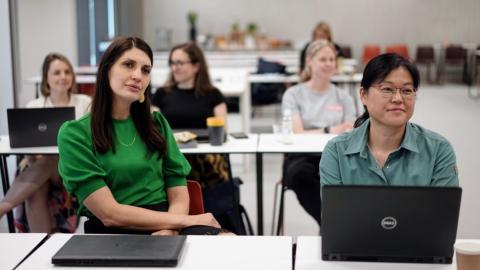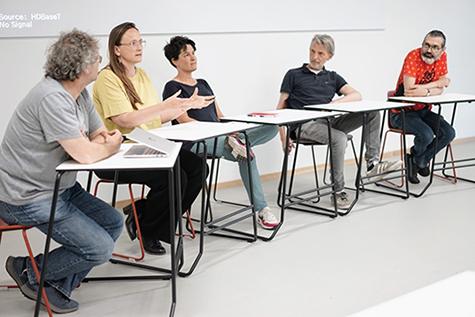Science and AI in Support of Diversity and Inclusion
In our rapidly evolving world, artificial intelligence (AI) is playing an ever-more significant role in our daily lives. However, with the increasing use of AI comes a growing concern about the potential biases inherent in algorithmic decision-making. Are these biases a result of the algorithms themselves, or do they merely shine a light on existing prejudices in our society?
In our rapidly evolving world, artificial intelligence (AI) is playing an ever-more significant role in our daily lives. However, with the increasing use of AI comes a growing concern about the potential biases inherent in algorithmic decision-making. Are these biases a result of the algorithms themselves, or do they merely shine a light on existing prejudices in our society? To explore this complex issue, Dr. Çiçek Güven organized a specific event on behalf of the Department of Cognitive Science and the Artificial Intelligence, 'Science and AI in Support of Diversity and Inclusion workshop' on 8th June 2023.
The event was opened by Dr. Marie Postma, setting the stage for a day filled with insightful discussions and presentations. The overarching goal of this workshop was to shed light on the positive contributions that artificial intelligence can make towards building a more inclusive society by exposing hidden biases within our data.
A Day of Insightful Presentations
The event featured a line-up of distinguished speakers and researchers, each contributing to the dialogue in their unique way:
1. Prof. Dr. Alexander Serebrenik (Eindhoven University of Technology): What do we know about Gender in Software Engineering Teams
2. Dr. Çiçek Güven (Tilburg University, CSAI): Using AI towards a more inclusive society
3. Dr. Eva Vanmassenhove (Tilburg University, CSAI): From Bias to Balance: Tackling Gender in Language Technology
4. Lisa Koutsoviti Koumeri (Hasselt University): Measuring Bias in Tabular Data in the Context of Pattern Classification Problems
5. Dr. Juan Sebastian Olier Jauregui (Tilburg University, CSAI) and Dr. Camilla Spadavecchia (Tilburg University, Department of Culture Studies): The Visual Portrayal of Migration: Stereotypes and Disproportions
6. Dr. Eriko Fukuda (Tilburg University, CSAI): Toward inclusive education practices in post-secondary education
7. Dr. Roos Slegers (Tilburg University, Department of Philosophy): Racism, conspiracy, and reptilians: diversity in dark fantasy
8. Prof. Dr. Ad Backus (Tilburg University, Department of Culture Studies): Diversity and inclusion in traditional multilingualism research
A Collaborative Endeavor
The event was a remarkable collaboration, bringing together researchers and experts from various domains to discuss and tackle diversity and inclusion issues through the lens of science and artificial intelligence. The interdisciplinary nature of the discussions underscored the importance of addressing biases and fostering inclusivity in a wide range of fields.
The day concluded with a thought-provoking panel discussion led by Prof. Dr. Eric Postma, bringing together the insights from the panelists, Prof. Dr. Ad Backus, Prof. Dr. Alexander Serebrenik, Dr. Roos Slegers and Dr. Merel Noorman and providing a platform for engaging conversations among the participants.
‘Science and AI in Support of Diversity and Inclusion’ at Tilburg University was a step forward in understanding the role of AI in shaping a more inclusive society. It showed that AI can indeed be a powerful tool in uncovering and addressing biases, ultimately contributing to a more equitable world for all. This event serves as a testament to the power of interdisciplinary collaboration and the potential of science and AI to make a real impact in building a more diverse and inclusive future.
Photo credit: Dr. Grzegorz Chrupała


